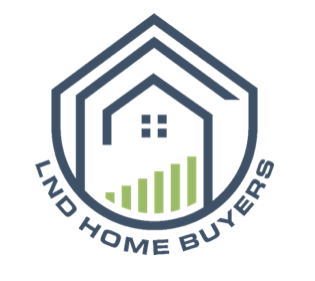Understanding the foreclosure process in the Hudson Valley NY area is an important part of navigating your own home foreclosure.
Before we jump right in, let’s understand exactly what it is we’re talking about…
Understanding the Foreclosure Process in Hudson Valley NY
What is foreclosure anyway?
The legal procedure through which lenders reclaim a property securing a loan is known as foreclosure, typically initiated when the borrower ceases payments. While facing foreclosure can be challenging, it’s important to realize that it doesn’t signify the end of everything.
Understanding the intricacies of foreclosure in the Hudson Valley NY area equips you with the information needed to navigate the process successfully and emerge on the other side in the best possible way.
Foreclosure 101
Several crucial stages define any foreclosure process.
The intricacies of foreclosure vary across states nationwide, with two primary methods employed for reclaiming a property: judicial sale or power of sale.
To learn about the specific foreclosure process in your local area, reach out to us at (845) 467-9129 or visit our contact page. Whether in the Hudson Valley NY area or elsewhere, we’re here to guide you through the process.
Generally, foreclosure proceedings are not taken to court until 3-6 months of missed payments. Typically, but not universally, lenders will issue multiple notices indicating overdue or missed payments,
Under Judicial Foreclosure:
-
- Your mortgage lender is required to initiate legal proceedings through the court system.
- Following this, you will receive a court-issued letter demanding payment.
- Provided the loan is deemed valid, you typically have 30 days to submit payment to the court, and in some cases, this period may be extended.
- Failure to pay within the specified period results in a judgment, empowering the lender to request the property’s sale, often conducted through an auction.
- Following the property’s sale, the sheriff serves an eviction notice, compelling you to promptly vacate the premises.
Under Power of Sale (or Non-Judicial Foreclosure):
-
- The mortgage lender delivers payment demand papers, and while court involvement is not mandatory, the process might undergo judicial review.
- All parties with a stake in the property must be informed during either foreclosure method. This includes entities like contractors or banks holding liens against the foreclosed property, who have the right to collect from the proceeds of an auction.
- Following the designated waiting period, a deed of trust is created, transferring control of your property to a trustee.
- Subsequently, the trustee has the authority to sell your property to the lender through a public auction, with the requirement to provide prior notice.
All parties with a stake in the property must be informed during either foreclosure method. This includes entities like contractors or banks holding liens against the foreclosed property, who have the right to collect from the proceeds of an auction.
What Happens After A Foreclosure Auction?
Once a foreclosure concludes, the loan amount is settled with the proceeds from the property sale.
In instances where the auction sale doesn’t cover the entire loan, a deficiency judgment may be issued against the borrower. This judgment occurs when the bank obtains a legal decision against the borrower for the outstanding funds owed on the loan after the foreclosure sale.
Different states have varying approaches; some limit the deficiency judgment to the property’s fair value at the time of sale, while others permit the borrower to be held liable for the entire loan amount.
Here’s a great resource that lists the state by state deficiency judgment laws, since every state is different.
Typically, it’s advisable to steer clear of a foreclosure auction. Instead, consider contacting the bank directly or collaborating with a trustworthy real estate firm to facilitate negotiations for discounts on the outstanding amount.
Seasoned investors can play a pivotal role by engaging in direct negotiations with banks, aiming to reduce the owed amount or potentially eliminate it altogether, especially in cases where the property’s value is lower than the outstanding debt.
If you need to sell a property near Hudson Valley NY, we can help you!
We buy houses all throughout NY like yours from people who need to sell fast!
Give us a call or text anytime (845) 467-9129 or
fill out the form on this website today! >>
Another Foreclosure Resource For Hudson Valley New York HomeOwners:
Sell Your House Fast Middletown NY
Sell Your House Fast Newburgh NY
Sell Your House Fast Goshen NY
Sell Your House Fast Monroe NY
Sell Your House Fast Warwick NY
Sell Your House Fast Port Jervis NY
Sell Your House Fast Chester NY
Sell Your House Fast New Windsor NY
Sell Your House Fast Montgomery NY
Sell Your House Fast Washingtonville NY
Sell Your House Fast Woodbury NY
Sell Your House Fast Pine Bush NY
Sell Your House Fast Walden NY
Sell Your House Fast Cornwall NY
Sell Your House Fast Harriman NY
Sell Your House Fast Greenwood Lake NY
Sell Your House Fast Florida NY
Sell Your House Fast West Point NY
Sell Your House Fast Highland Falls NY
Sell Your House Fast Maybrook NY
Sell Your House Fast Blooming Grove NY
Sell Your House Fast Poughkeepsie NY
Sell Your House Fast Wappingers Falls NY
Sell Your House Fast Kingston NY
We Buy Houses in Goshen NY
We Buy Houses in Monroe NY
We Buy Houses in Warwick NY
We Buy Houses in Port Jervis NY
We Buy Houses in Chester NY
We Buy Houses in New Windsor NY
We Buy Houses in Montgomery NY
We Buy Houses in Washingtonville NY
We Buy Houses in Woodbury NY
We Buy Houses in Pine Bush NY
We Buy Houses in Walden NY
We Buy Houses in Cornwall NY
We Buy Houses in Harriman NY
We Buy Houses in Greenwood Lake NY
We Buy Houses in Florida NY
We Buy Houses in West Point NY
We Buy Houses in Highland Falls NY
We Buy Houses in Maybrook NY
We Buy Houses in Blooming Grove NY
We Buy Houses in Poughkeepsie NY
We Buy Houses in Wappingers Falls NY
We Buy Houses in Kingston NY

